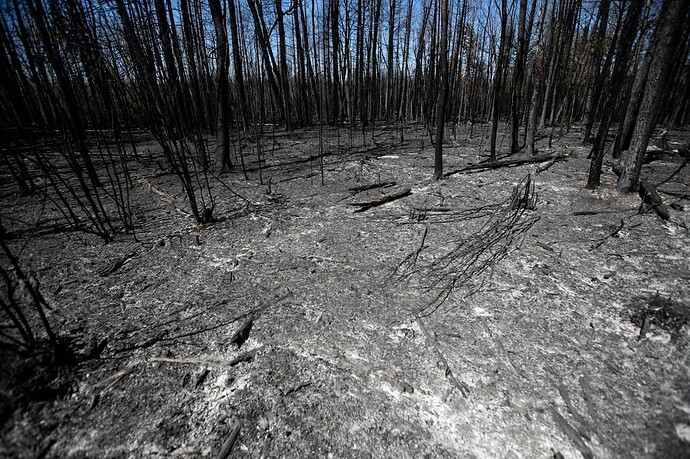Dwindling old-growth trees in British Columbia and devastating wildfires in Manitoba highlight the urgency of new approaches to forest management
Canada’s vast forests are the envy of much of the world, but they’ve seen brighter days. Our changing climate has beckoned wilder wildfires, disease and drought. And after decades of cutting big and fast to maximize profits, the country’s logging industry is in freefall.
But there’s opportunity in crisis — or that’s the bet some First Nations in British Columbia are making. Major forestry companies are moving operations south of the border, and First Nations are buying into the industry in record numbers.
They’ll face the same tough conditions the big guys left behind: high tariffs on lumber exports to the U.S. and a scarcity of the high-value, old-growth trees the industry was designed to consume in huge volumes.
“Now we’re dealing with a lot of scrub in that corner that we didn’t get to before,” Garry Merkel, a professional forester and a member of the Tahltan Nation, told freelance journalist Zoë Yunker.
And yet, many First Nations are determined to do more than just squeeze whatever profits are left. “We’re seeing much higher standards of land care and a lot more focus on ecological health and the relationship to the land,” Merkel said.
The future of forestry in B.C. is hazy, but First Nations, long-excluded from the resources of their own territories, will have a seat at the table.
In Manitoba, the forestry industry watched this summer as profits went up in smoke. Devastating fires burned more forest in logging areas than any year in recorded wildfire history, according to an analysis by Manitoba reporter Julia-Simone Rutgers.
And forestry companies are “scared to death,” wildfire ecologist Bob Gray told Julia-Simone.
It may still be just a concept of a plan, but the Manitoba government has promised a fresh approach. Its latest climate action strategy includes a commitment to “co-develop a wildfire prevention and preparation approach that reflects Indigenous leadership, land-based knowledge and nature-based solutions.”
Despite the obstacles, these stories from B.C. and Manitoba highlight opportunities to do better — for forests and communities. In the face of all that’s coming, we simply don’t have a choice but to try.
